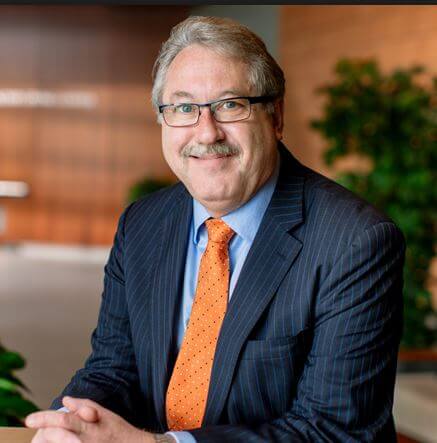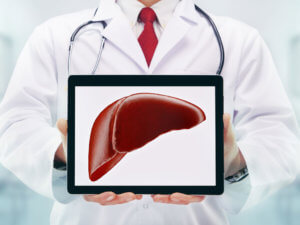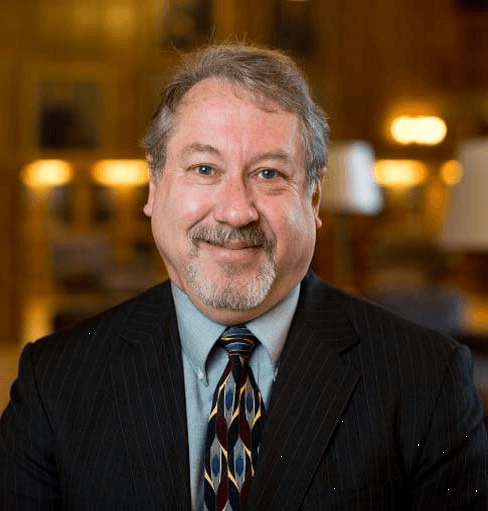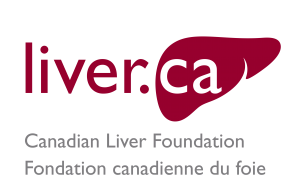The CLF-CASL Gold Medal Award

The CLF-CASL Gold Medal Award
In 1983, The Canadian Liver Foundation (CLF) established the Gold Medal Award, created to recognize international doctors and scientists that have made a significant contribution to the advancement of liver health and disease.
Today, the award is given jointly with the Canadian Association for the Study of the Liver (CASL). The CLF-CASL Gold Medal recipients comprise an impressive list of internationally-recognized liver specialists. The knowledge gained from the collective research of these individuals has provided the CLF with the information we need to help improve the lives of Canadians living with, or at risk of developing liver disease(s).
This year, we sat down with the 2018 Gold Medal Award winner Dr. Gregory J. Gores, M.D, who is a Reuben Professor of Medicine and Physiology, and the Kinney Executive Dean for Research at the Mayo Clinic. Dr. Gores shared his professional experiences with us, speaking on the climate of liver health and disease today.

Why did you choose to become a hepatologist? How did you first get involved or exposed to hepatology?
My decision was built off a long-lasting interest and exciting advances in hepatology. I’ve always been interested in liver disease, beginning in medical school. I found the complexity of the liver to be fascinating, and the types, as well as the complications, of liver disease to be profound. When I became a gastroenterology fellow, liver transplantation was beginning to progress into a reality which really established my career choice as a hepatologist.
What do you find most rewarding (or challenging) about being a hepatologist?
Understanding all the nuisances of liver-related complex disorders is definitely rewarding. In today’s world, there is so much you can do to help people, such as being confident in the diagnoses, providing reassurance, and prescribing treatment approaches to treat the underlying liver disease and/or the resulting complications. The biggest challenge in liver disease is that with all the progress we’ve made in medicine, we can truly never do enough.

What has surprised you most about working in hepatology?
Every day is certainly a surprise as an investigator. It’s great to always be excited about what you’re doing. To be specific, the idea that the liver can signal when it is unwell by releasing extracellular vesicles is certainly a new and sensational discovery in hepatology. These extracellular vesicles communicate with inflammatory cells and promote liver injury.
Can you give us an example of something that shaped the way you cared for other patients?
In 2000, we were fortunate enough to have pioneered liver transplantation for malignancy including hepatocellular cancer, neuroendocrine tumours, and cholangiocarcinoma. We have since transplanted over 200 patients with cholangiocarcinoma. With early positive results, we were able to continue treating patients successfully. This is the storyline that has kept me going through the years, as we’ve been able to shift the narrative regarding liver transplantation for liver cancer patients.

What is the one thing you wish the general public knew about liver health and disease?
Simply, that most liver diseases are not related to alcohol use. A challenge the whole medical profession struggles with is that patients who have harmed their liver through an unhealthy lifestyle often do not receive the same sympathy compared to those who, for example, are born with liver disease, or those who have unknowingly developed it over time. We need to find effective ways to erase the stigma and focus on educating the public about liver diseases of all origins.
What does receiving the CLF-CASL Gold Medal Award mean to you?
Receiving this award is one of the highest honours of my professional career, as it reflects not only an appreciation for my contributions to hepatology as a medical specialty but also to the profession through leadership and mentorship.
Dr. Gores accepted the CLF-CASL Gold Medal Award on February 11, 2018, at the Canadian Liver Meeting (CLM) in Toronto. He also delivered lectures on risk factors, genetics and emerging treatments for hepatocellular carcinoma at the CLM. Visit our website to learn more about CLF-CASL Gold Medal Award recipients.


